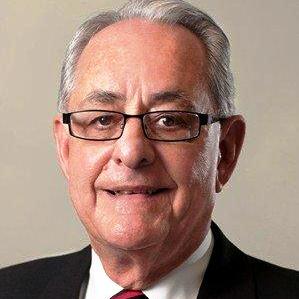AARP Hearing Center

AARP Ohio volunteer State President Michael Barnhart was among volunteers and staff who today (Tuesday, April 28) dropped off petitions at the U.S. Department of Labor in support of a conflict of interest standard, following the release of a proposed rule earlier this month.
The delivery of the petitions, containing more than 26,000 signatures, kicks off several days of action in Washington that includes visits to U.S. Senators Rob Portman (R) and Sherrod Brown (D) and Ohio members of the U.S. House of Representatives on issues that include eliminating conflicts of interest in retirement advice, the Older Americans Act, the Safe Streets Act, the bipartisan Assisting Caregivers Today (ACT) Caucus, and Social Security Trust Fund solvency, as well as thanking those who helped to pass a “doc fix” law that allows Medicare beneficiaries to keep seeing their physicians.
“We’ve come to Washington to hear what our Congressional representatives have to say on a variety of issues that range from Social Security and safe street to a new law that would ensure all financial advisers must put their clients’ interests first,” Barnhart said. "Right now some on Wall Street are held to that fiduciary duty while others are not, which is tough for consumers to sort through."
Among the issues that volunteers and staff from across the county will raise with members of the House and Senate are:
· Financial Conflicts of Interest: In addition to bringing petitions to the U.S. Department of Labor, AARP volunteers continue to speak to members of Congress about AARP’s opposition to any legislation that seeks to stop or slow a proposed rule requiring all retirement advisers to give advice in their clients’ best interest. Each year hidden fees, unfair risk and bad investment advice rob Americans of $17 billion of retirement income.
· The Older Americans Act (S.192): The reauthorization of the bipartisan Older Americans Act would help ensure the continued array of programs and services to assist, protect, nourish and sustain the nation’s seniors with maximum dignity and independence. Since 2010, AARP has consistently supported and urged a simple reauthorization to protect the core programs of this crucial law.
· The Safe Streets Act: Expected to be reintroduced today in the House, the bipartisan Safe Streets Act would ensure that planners and traffic engineers design, construct, and operate roads with the safety of all users in mind by directing states and metropolitan planning organizations (MPOs) to create a "safe streets" policy within two years of enactment. The policy would be different for each locality based on their individual communities.
· Assisting Caregivers Today (ACT) Caucus: AARP backed the formation of the bipartisan, bicameral caucus as a forum to engage those in the House and Senate on family caregiving and living independently, exchange ideas, and build bipartisan relationships that can lead to solutions. Volunteers will seek to expand this important caucus. The caucus was launched in March of this year by U.S. Sens. Kelly Ayotte (R-NH) and Michael Bennet (D-CO) and U.S. Reps. Diane Black (R-TN) and Michelle Lujan Grisham (D-NM).
· Social Security: If Congress does not address the shortfall in the Social Security Disability Insurance (SSDI) trust fund, children, veterans, older workers, families and others who receive disability insurance benefits may face a 20% cut in their benefits. AARP seeks a reallocation of the trust funds with improved program integrity measures.































































